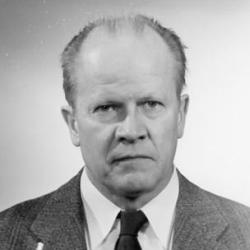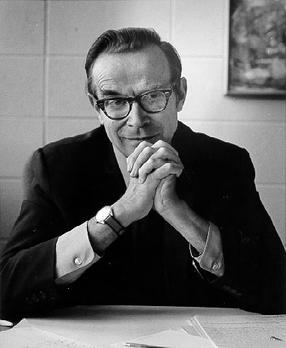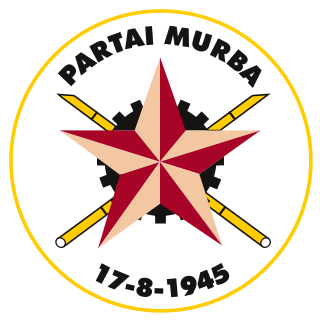Related Research Articles

Benedict Richard O'Gorman Anderson was an Anglo-Irish political scientist and historian who lived and taught in the United States. Anderson is best known for his 1983 book Imagined Communities, which explored the origins of nationalism. A polyglot with an interest in Southeast Asia, he was the Aaron L. Binenkorb Professor of International Studies, Government & Asian Studies at Cornell University. His work on the "Cornell Paper", which disputed the official story of Indonesia's 30 September Movement and the subsequent anti-Communist purges of 1965–1966, led to his expulsion from that country. Benedict Anderson was the elder brother of the historian Perry Anderson.
The University of Virginia College of Arts & Sciences is the largest of the University of Virginia's ten schools. Consisting of both a graduate and an undergraduate program, the College comprises the liberal arts and humanities section of the University.
Oliver William Wolters was a British academic, historian and author. He was also a Malayan civil servant and administrator. At his death, he was the Goldwin Smith Professor of Southeast Asian History Emeritus at Cornell University.
Southeast Asian studies (SEAS) refers to research and education on the language, culture, and history of the different states and ethnic groups of Southeast Asia. Some institutions refer to this discipline as ASEAN Studies since most of the countries that they study belong to the Association of Southeast Asian Nations or ASEAN. Definitions of what constitutes Southeast Asia differ between scholars, which blurs the boundaries between Southeast Asian studies and other regional studies like Oriental studies and post-colonial studies. Southeast Asian studies incorporates anthropology, religious studies, linguistics, and international relations.
Merle Calvin Ricklefs was an American-born Australian scholar of the history and current affairs of Indonesia.

Lauriston Sharp was a Goldwin Smith Professor of Anthropology and Asian Studies at Cornell University. He was the first person appointed in anthropology at the university, and he created its Southeast Asia Program, research centers in Asia and North and South America, a multidisciplinary faculty and strong language program. He was a founding member of the Society for Applied Anthropology and a founding trustee of the Asia Society.
The Weatherhead East Asian Institute (WEAI) at Columbia University is a community of scholars affiliated with Columbia's schools, bringing together over 50 full-time faculty, a diverse group of visiting scholars and professionals, and students from the United States and abroad. Its mission is to train new generations of experts on East Asian topics in the humanities, social sciences, and the professions and to enhance understanding of East Asia in the wider community. Since its establishment in 1949 as the East Asian Institute, the WEAI has been the center for modern and contemporary East Asia research, studies, and publication at Columbia, covering China, Japan, Taiwan, Hong Kong, Korea, Mongolia, Tibet, and, increasingly, the countries of Southeast Asia.
The Melanau–Kajang languages or Central Sarawak languages are a group of languages spoken in Kalimantan, Indonesia and Sarawak, Malaysia by the Kenyah, Melanau and related peoples.
The Punan languages or Rejang-Sajau languages are a group of mutually intelligible isolects spoken by the Punan and related peoples of Borneo in Indonesia and Malaysia.
The Kenyah languages are a group of half a dozen or so closely related languages spoken by the Kenyah peoples of Borneo. They are:
The Greater North Borneo languages are a proposed subgroup of the Austronesian language family. The subgroup covers languages that are spoken throughout much of Borneo, as well as parts of Sumatra and Java, and Mainland Southeast Asia. The Greater North Borneo hypothesis was first proposed by Robert Blust (2010) and further elaborated by Alexander Smith. The evidence presented for this proposal are solely lexical.
A Preliminary Analysis of the October 1, 1965, Coup in Indonesia, more commonly known as the "Cornell Paper", is an academic publication detailing the events of an abortive coup d'état attempt by the self-proclaimed September 30 Movement, produced on January 10, 1966. The study was written by Benedict Anderson and Ruth McVey, with the help of Frederick Bunnell, using information from various Indonesian news sources. At the time of writing, the three were members of Cornell University's network of graduate students and scholars on Southeast Asia.

George McTurnan Kahin was an American historian and political scientist. He was one of the leading experts on Southeast Asia and a critic of United States involvement in the Vietnam War. After completing his dissertation, which is still considered a classic on Indonesian history, Kahin became a faculty member at Cornell University. At Cornell, he became the director of its Southeast Asia Program and founded the Cornell Modern Indonesia Project. Kahin's incomplete memoir was published posthumously in 2003.

Murba Party was a 'national communist' political party in Indonesia. The party was founded by Tan Malaka, Chairul Saleh, Sukarni and Adam Malik in 1948. The history of the party was largely intertwined with that of the powerful Communist Party of Indonesia (PKI). Initially relations between PKI and the Murba Party were fluid, but gradually the two parties developed into each other's arch-enemies. The Murba Party continued to exist under the New Order, but was merged into the Indonesian Democratic Party in 1973.
Masamba is a small river town and district (kecamatan) in the North Luwu Regency of South Sulawesi Province of Indonesia which serves as the seat of the regency. The town lies on the Patikala River. It is served by Andi Jemma Airport. Much of the land in the region is swampy coastal plains with mangroves found in its shallow waters.
Consentrasi Gerakan Mahasiswa Indonesia was an organization of university students in Indonesia, linked to the Communist Party of Indonesia. CGMI was founded in 1956, through the merger of communist-led university student groups in Bogor, Bandung and Yogyakarta. At the time of its founding, CGMI had a membership of around 1,180.

Wikana was an Indonesian minister and independence leader. He was one of the youths who forced Sukarno and Hatta to declare independence immediately after the surrender of the Japanese. He was the first Indonesian Minister of Youth and Sport. He was a member of the Indonesian Communist Party. Sometime after the 1965 coup d'état attempt, he was arrested and went missing.
Ruth Thomas McVey is an American scholar of Indonesia and Southeast Asia known especially for her writings on Communism and the Indonesian Communist Party. With Benedict Anderson, she co-wrote the Cornell Paper, a 1966 work which examined the failed September 30 Movement in Indonesia. She has written and edited a number of books about Indonesian and Southeast Asian politics, including The rise of Indonesian communism (1965) and The Soviet view of the Indonesian revolution (1969).
Lintong Mulia Sitorus, in pre-1948 spelling Lintong Moelia Sitoroes, was an Indonesian intellectual, writer, translator, lawyer, and Socialist Party of Indonesia politician. He was a key follower of the independent-minded Indonesian nationalist Sutan Sjahrir in the 1940s and 1950s.

Raden Ajeng Kurnianingrat Sastrawinata, more commonly known mononymously as Kurnianingrat, was an Indonesian educator and pioneer of the country's curriculum for teaching English as a foreign language. She was deputy director of Indonesia's English Language Inspectorate, a branch of the Ministry of Education, Instruction, and Culture, from 1953 to 1956. Later, she served as the head of the English studies department at the University of Indonesia.
References
- ↑ "Southeast Asia Program -". Archived from the original on 2011-08-28. Retrieved 2011-10-07.
- ↑ "Overview | Southeast Asia Program". seap.einaudi.cornell.edu. Retrieved 2020-06-23.
- ↑ "Kahin Center | Southeast Asia Program". seap.einaudi.cornell.edu. Retrieved 2020-06-23.
- ↑ Koswaraputra, Dandy. "Indonesianist Benedict Anderson dies at 79". The Jakarta Post . Retrieved 2020-06-23.